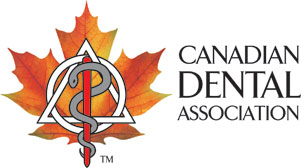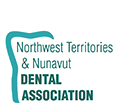April 1, 2022 - Ottawa, ON: The Canadian Dental Association (CDA) brought remarks to the House of Commons Standing Committee on Human Resources, Skills and Social Development and the Status of Persons with Disabilities (HUMA) on March 31, 2022. With the HUMA committee studying Labour Shortages, Working Conditions and the Care Economy, CDA focused its discussion on the labour shortage issue surrounding dental assistants in Canada.
The COVID-19 pandemic had an immense impact on access to dental care of Canadians, causing dental offices to shut down for months in 2020. Healthcare human resources, workforce issues and labour shortages have been made worse by the COVID-19 pandemic and are now widespread across health sectors and professions.
“For private settings such as dental offices, the number of dental assistants in the workforce was an obstacle even before the pandemic,” says Dr. Holden, CDA President. “The post-pandemic reality has worsened the challenge of hiring and retaining dental assistants.”
CDA cautions that any initiatives to increase the supply of healthcare workers in the public system risks heightening the workforce challenges also faced by private-sector providers - approximately one-third of healthcare in Canada. Any new government initiatives related to healthcare human resource and workforce issues should consider the significant portion of healthcare in Canada delivered outside of the publicly funded system, in private settings such as dental offices.
“Dental assisting is a skilled profession with eight provinces requiring licensing or registration” added Dr. Holden. “Dental assistants are crucial members of dentist-led teams and without them, the gap to access to dental care will widen. Dentists need more formally-trained, licensed dental assistants to help maintain and increase Canadians’ access to oral health care.”
CDA is committed to work collaboratively with the federal government and the Canadian Dental Assistants Association (CDAA) to address these issue that directly impact retention of dental assistants. CDA recently partnered with the CDAA to submit a project to ESDC’s Sectoral Workforce Solutions Program. The project, Building the Professional Dental Assisting Workforce of the Future, seeks to address the many factors impacting the attrition of dental assistants from their profession by:
- providing mental health and wellness training for dental office staff,
- providing human resources training for dentists and office managers,
- increasing access to certified dental assisting programs through the development of an online-based curriculum; and
- developing action plans to address interprovincial labour mobility and better integration of immigrants into the dental workforce
View Dr. Holden’s complete written remarks. View the March 31, 2022, recording of the HUMA Committee meeting [see play point 15:54:35 for CDA’s appearance, Question 1) at 16:06:45, and Question 2) at 16:49:15].
Fast Facts:
- Ninety-nine (99) per cent of dental assistants in Canada are women, with an average age of 38.
- Many dental assistants exit the workforce for other professions due to, among other factors:
- workplace concerns such as stress and mental health;
- the desire for flexible hours; and
- the appeal of work-from-home opportunities.
- In 2019, 36% of dental offices had unfilled dental assistant positions.
- From 2010 to 2020, the ratio of new certified dental assistants to new dentists entering the workforce fell from over 3-to-1 to almost 1-to-1.
About the Canadian Dental Association
The Canadian Dental Association (CDA) is the national voice for dentistry dedicated to the promotion of optimal oral health, an essential component of general health, and to the advancement and leadership of a unified profession. CDA, a non-regulatory authority, is a federally incorporated not-for-profit organization whose corporate members are Canada's provincial and territorial dental associations (PTDAs). CDA represents over 21,000 practising dentists from coast to coast to coast.
Media Contact:
Zelda Burt
Head of Communications
Canadian Dental Association
613-523-7963
media@cda-adc.ca











